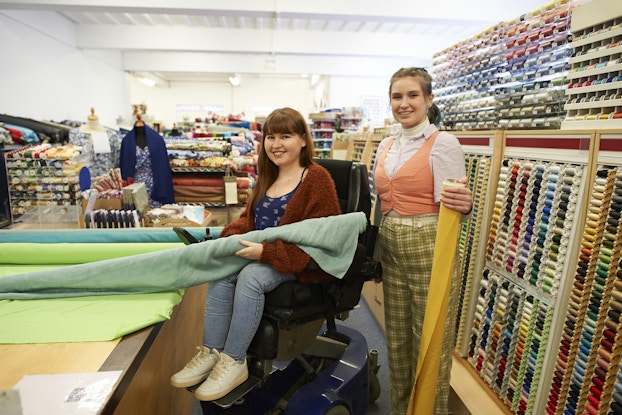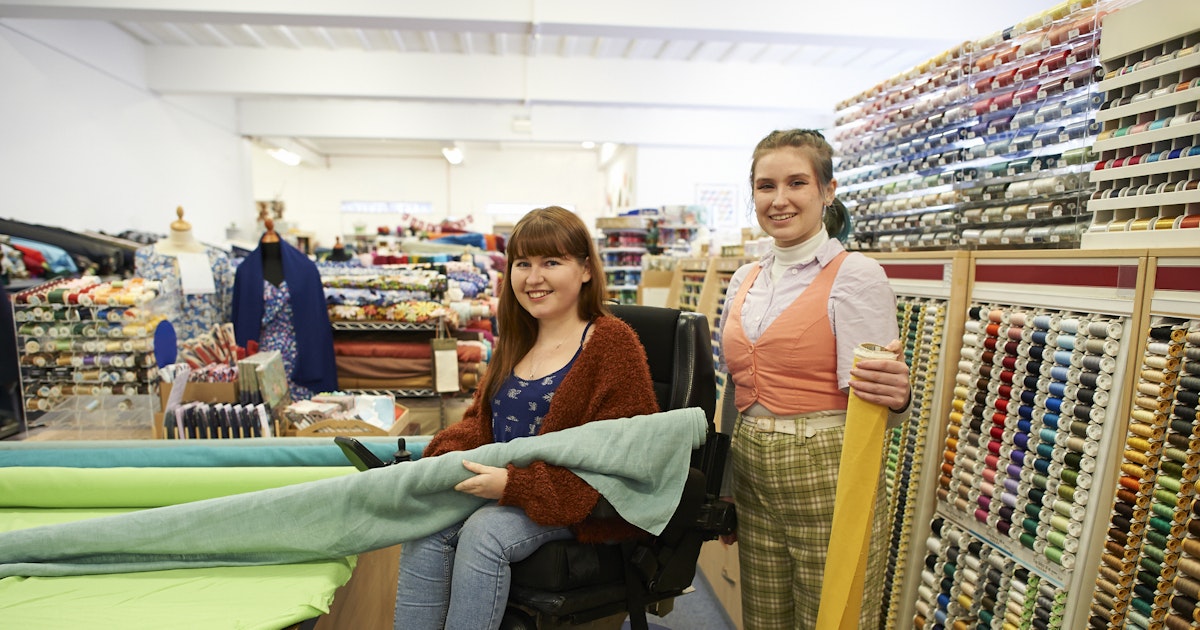
Funding and other resources for business owners with disabilities are available through government programs and nonprofit organizations. — Getty Images/Dougal Waters
Starting a business is an important and viable option for adults with disabilities, especially those operating outside the traditional workforce. There are more than 1.8 million business owners with disabilities in the United States, many of whom may need to overcome barriers to starting a business that able-bodied people don’t have to consider.
To help bridge that gap, here are some funding options to help entrepreneurs with disabilities get the support they need to start, run, and grow their businesses.
Plan for Support and Self-Reliance (PASS) Program
The Plan for Assistance to Support Self-Reliance (PASS) is a federal program designed to help people with disabilities more easily enter the workforce and ultimately reduce their reliance on federal Supplemental Security Income.
PASS can be used to cover a variety of expenses that entrepreneurs with disabilities need to start their own businesses, including supplies, transportation, training and equipment.
Eligibility for PASS is based on income and assets. To qualify for the program, entrepreneurs with disabilities must have a net worth of less than $2,000 (less than $3,000 for married couples). To receive funds for self-employment, they must submit a detailed business plan along with an application, available online.
[Read more: How to Write a Startup Business Plan]
Small and Medium Enterprise Support Program
The Small Disability Business Program is another federal incentive that entrepreneurs with disabilities can take advantage of to grow their businesses.
The U.S. government awards about 10% of federal contracts, or roughly $50 billion, to small businesses each year. To be eligible for these contracts, a business must be at least 51% owned and controlled by at least one disadvantaged person, as defined by the federal government. It must also be small, according to the Small Business Administration (SBA) size standards.
To enroll in the program and become eligible for these designated federal contracts, sign up online and designate your company as a “small business.”
Disabled Veteran Owned Small Business (SDVOSB) Program
Similarly, the federal government awards at least 3% of federal contract awards to Disabled Veteran-Owned Small Businesses (SDVOSBs).
To qualify as an SDVOSB, the business must be owned and controlled by at least one veteran or disabled veteran and must be considered “small” according to the SBA’s size standards.
To be awarded these contracts, SDVOSBs must self-certify that they are owned by disabled veterans.
[Read more: How to Become a Certified Veteran-Owned Business]
Assistive technology is essential for people with disabilities, but it is often very expensive.
Axion Opportunity Fund
Entrepreneurs with disabilities can also turn to Accion Opportunity Fund, a nonprofit community lending agency that provides small business loans to disadvantaged communities.
Loans range from $5,000 to $250,000 and can be used to improve workplace accessibility, install or update assistive technology, purchase adaptive work vehicles, and more.
Entrepreneurs can apply online and must submit tax documents outlining their business’s revenue and expenses. To secure a loan, they often must guarantee the loan with a personal guarantee.
In addition to financing, the Accion Opportunity Fund also provides educational resources, coaching and a support network that entrepreneurs with disabilities can use to grow their businesses.
[Read more: A Practical Guide to Funding Your Small Business with Business Loans and Beyond]
National Association of the Self-Employed (NASE)
The National Association for the Self-Employed (NASE) provides business grants and opportunities for entrepreneurs with disabilities. NASE supports self-employed owners and small businesses by providing access to benefits and resources to help them compete with larger companies.
NASE members (including entrepreneurs with disabilities) can apply for Growth Grants, which are specific business development grants that can be used for marketing, advertising, hiring, expansion, and other needs that will help their business grow. Each grant is worth a total of $4,000.
To be eligible for the NASE Growth Grant, businesses must register with the association before applying for the grant.
Assistive Technology Business Loan
Assistive technology is essential for people with disabilities, but it is often very expensive. However, there are several funding sources available to employers who want to implement assistive technology in the workplace, including:
There are several federal and state grants and Telecommunications Device Access Programs (TDAPs), although these programs and funding sources vary by state. Additionally, there are several nonprofit organizations that help employees with hearing loss, visual impairments, cerebral palsy, multiple sclerosis, and muscular dystrophy access assistive technology.
CO— aims to provide inspiration from leading, respected experts. However, before making any business decisions, you should consult with an expert who can advise you based on your individual circumstances.
Applications for CO-100 are now open! Now is your chance to join an exclusive group of outstanding small and medium-sized businesses. Share your story with us. Apply now.
CO is committed to helping start, run and grow small businesses. Learn more about the benefits of U.S. Chamber of Commerce Small Business Membership here.
Apply for CO-100!
CO-100 is an exclusive list of 100 of the best and brightest small businesses in America. Join now to share your story and get recognized.
Subscribe to the Midnight Oil Newsletter
Released on November 1, 2023

